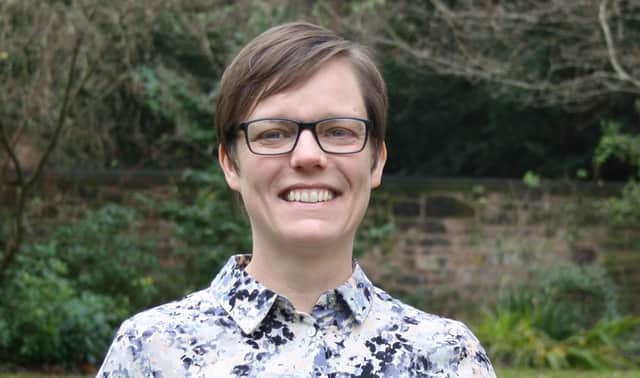Samaritans’ new six steps manifesto is crucial starting point to help save lives - Rachel Cackett


The coronavirus pandemic has exposed and deepened existing inequalities and pressures as well as creating new challenges. But over the last 12 months we’ve also witnessed how policy-makers, frontline services, the voluntary sector and communities have risen to these challenges with renewed collaboration, innovation and compassion.
Today we published our manifesto – 6 Priorities to Help Save Lives – calling on the next government to build on that momentum, by putting mental health and wellbeing at the heart of Scotland’s recovery. While it is still too early to know how the coronavirus pandemic will affect mental health and wellbeing in the long-term, we believe these six steps are a crucial starting point to help save lives.
Advertisement
Hide AdAdvertisement
Hide AdWe’re calling for the next government to commit to an ambitious, fully funded ten-year suicide prevention strategy that builds on progress to date and creates real change. The latest data shows that 833 people lost their lives to suicide in Scotland in 2019, and the national suicide rate increased for the second year in a row. That figure is a stark reminder of why the next government must redouble efforts to reduce deaths by suicide, ensuring support is there for anyone in suicidal crisis while working to strengthen early intervention and prevention. We’re also calling for the next government to ensure that suicide prevention is informed by the latest data and intelligence, supporting policy-makers and services to identify and respond to emerging risks and share what works.
Data from the Scottish Health Survey shows the proportion of Scots who have ever self-harmed has more than doubled over the last decade. Despite this, self-harm often remains hidden and poorly understood. This shouldn’t continue. We’re calling for the next government to commit to a dedicated national strategy to improve understanding of self-harm, strengthen support for those affected and address underlying causes.
The links between inequality, deprivation, poverty and poor mental health are well-established and people living in the most deprived communities in Scotland continue to be over three times more likely to die by suicide than those living in the most affluent communities. Addressing these inequalities requires a cross-sector approach which is why we are calling on the next government to ensure policy and services recognise and address the links between deprivation and poor mental health and take ambitious action to reduce inequality.
Loneliness and isolation is another challenge that the coronavirus pandemic has exposed and exacerbated. In the first nine months since lockdown restrictions where introduced, three in ten calls to our helpline mentioned feelings of loneliness and isolation – a ten per cent increase in contacts about loneliness compared to the same period the previous year. As we look ahead to Scotland’s recovery, we’re calling on the next government to invest in creative on and offline interventions to reduce loneliness and isolation.
Throughout this crisis Scotland’s third and voluntary sector has proven itself to be a crucial partner in the coronavirus response, providing a lifeline to people and communities. We’re calling on the next government to empower the third sector to maximise the potential of volunteering and play an integral role in Scotland’s recovery by delivering essential services and supporting capacity-building, employability and wellbeing through volunteering opportunities.
No one can deny the challenges we’ve faced over the last year, or the challenges that lie ahead. But by taking these steps, Scotland’s next leaders can put mental health and wellbeing at the heart of our recovery and, ultimately help to save lives.
Rachel Cackett, Executive Director, Samaritans Scotland
Comments
Want to join the conversation? Please or to comment on this article.